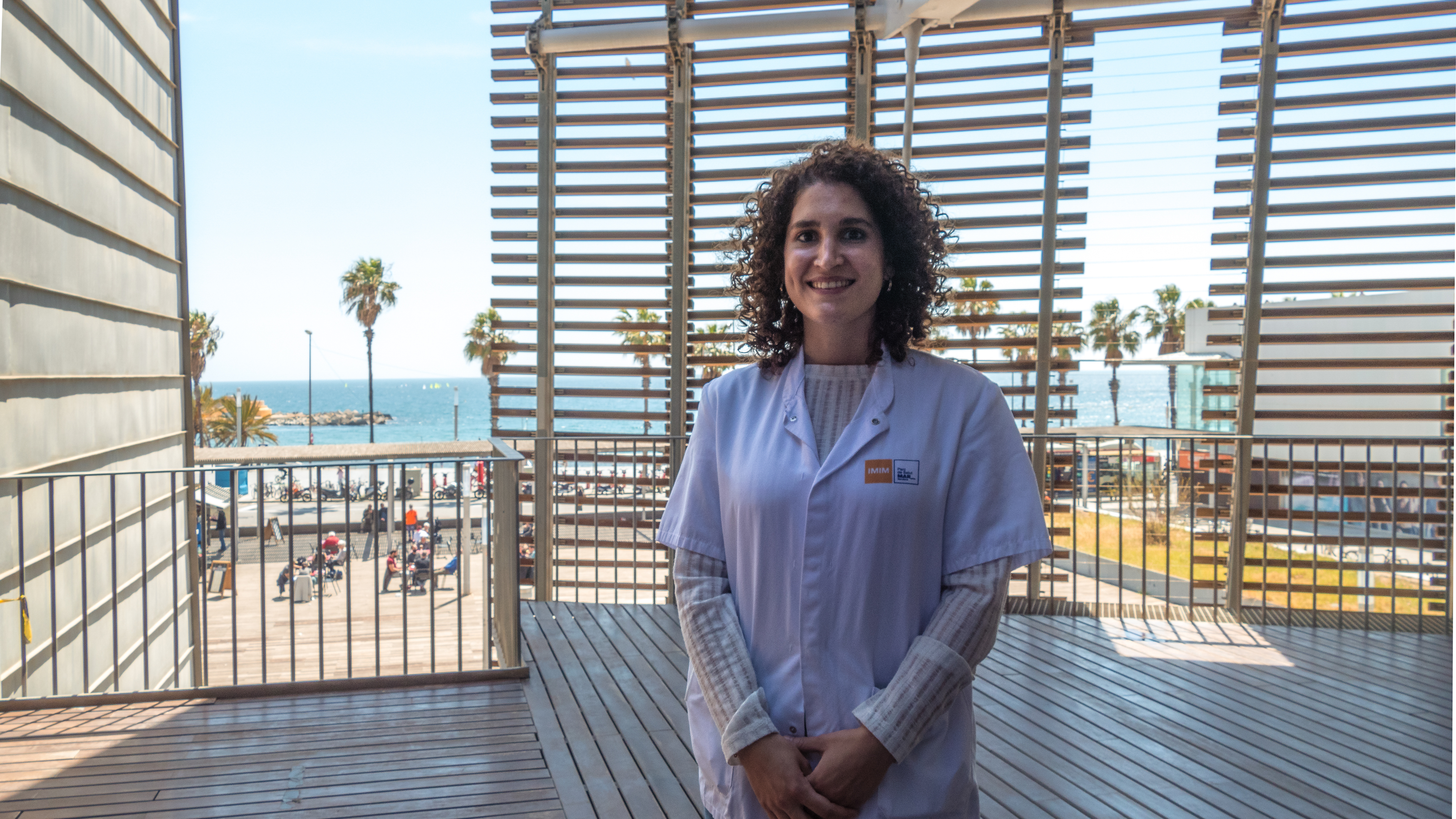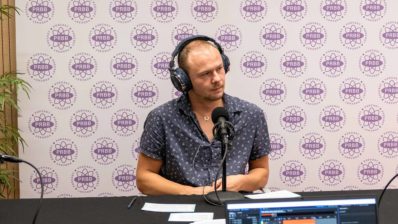May 20 is International Clinical Trials Day. This date was chosen in commemoration of the May 1747 clinical trial in which James Lind demonstrated the protective role of Vitamin C against scurvy, through an intervention study in the diet of the Marines of the Salisbury ship.
Two hundred and seventy-four years later, thanks to the pandemic of COVID19, clinical trials are the talk of the day, generating a Big Bang of sensations: distrust, misunderstanding, admiration, gratitude… We cannot find a better time to interview Iris Lioba Matilla Vaz, one of the nurses in the Clinical Research Unit of the Hospital del Mar Institute for Medical Research (IMIM), a unit accredited by the Generalitat de Catalunya for conducting clinical trials in phase I.
Let’s start at the beginning: what are clinical trials?
Clinical trials are medical research studies that aim to evaluate the effects produced by the administration of a drug, a health product or to evaluate any other type of therapeutic intervention.
Are all these drugs or products authorized for use in humans?
All drugs must be authorized for their use as described in their data sheet and package leaflet. A drug goes through different phases before reaching the market, and all studies carried out in these phases need the authorization of the Spanish Agency for Medicines and Health Products (AEMPS). In addition, in order to be administered to people for the first time in a clinical trial, it must have first satisfactorily undergone laboratory and animal studies. But we could also do trials with drugs that are already authorized for marketing and that are available at Pharmacies or Hospitals.
How is the process for a drug or health product to reach the market?
We could explain it from the types of essays that exist.
- The first step would be the phase I clinical trial. This allows us to find out the toxicity of the substance under investigation. We are talking about substances that have not previously been administered in humans so this type of study will provide us with very valuable information on the pharmacokinetics; it provides us with a kind of X-ray of the passage of the substance throughout the body of a healthy person.
- Once we know how this drug behaves, we need to know how effective and safe it will be and what dose is needed for it to have an effect, so phase II trials begin. These are carried out in a small number of people who have the target disease.
- By the time we know that this drug is safe and has a positive effect, we need to expand the sample to confirm that the effects found are not pure chance. We thus enter the phase III trials, which are also conducted with affected people. This is the pre-marketing step of the drug.
- But the research process does not end with the commersialisation. Sometimes the patients who go to the doctor suffer from various diseases and are taking various medicines and this makes their characteristics different to those of the patients who participated in the phase II and III clinical trials. The clinical trials we conduct in phase IV can provide us with information on the actual use of the drug in routine clinical practice.
And do all these studies have any control system?
Sure, and more than one! All studies must have a protocol (their “recipe”) justifying the need for research, each of the procedures to be carried out, the drugs or interventions that will be administered to the volunteers, how samples will be processed and how the data obtained from the research will be treated and analyzed. This protocol and all documents addressed to volunteers must be approved by a Clinical Research Ethics Committee and authorized by the Agencia Española del Medicamento y de Productos Sanitarios, before being set up. In addition, units such as the URC must pass inspections every two years by the Department of Health of the Generalitat de Catalunya in order to carry out phase I clinical trials.
The Clinical Research Unit has a team of 3 doctors specializing in clinical pharmacology, 4 nurses, 2 monitors and 1 research support technician.
So, is it safe to participate in a clinical trial?
As I commented, clinical trials are under several controls to ensure that all procedures comply with the regulatory legal framework. In addition, the team of researchers who carry out the studies is qualified staff. For example, the URC is made up of a team of 3 doctors specializing in clinical pharmacology, 4 nurses, 2 monitors and a research support technician. We are all trained in Good Clinical Practice regulations to ensure the quality and authentication of research.
But there are the famous adverse reactions, right?
Yes exactly, any medication, even those that we can buy at the Pharmacy, could have some adverse reactions in some people. While on the market the AEMPS guarantees that the benefits of receiving the treatment outweigh the risks. During clinical trials we are monitoring drug safety continuously throughout the participation in the study. In most cases where there is a reaction, this is mild, such as a headache. But if something serious happens, everything is recorded to offer the person the necessary medical attention and notify the health authorities of what has happened in less than 24 hours.
Can anyone participate in a clinical trial?
Anyone could participate as long as they meet the requirements of the study to be launched. These criteria are described in a protocol and, for verification, we ask a series of questions in a clinical interview and tests that can be laboratory-based, electrocardiograms, etc. This is all explained when the nurse first contacts the person concerned.
“In clinical trials we are monitoring the safety of drugs continuously throughout the participation in the study”
Iris Lioba Matilla Vaz, nurse at IMIM
If someone wants to participate in your studies as a volunteer, what steps should they follow?
If you want to participate as a clinical trial volunteer you must contact us through our website, by writing to voluntarisassaig@imim.es or by calling 93.316.04.96. Once you get in touch, a nurse will ask you a few questions and tell you about the active studies that fit your profile.
How is the day-to-day of a clinical trial unit?
It depends on how many studies we have underway at the moment and which phase each one is at. Before carrying out the experimental part, the protocol and informed consent of the study are drafted and reviewed, various forms are filled in and the documentation is submitted to the AEMPS and an Ethics Committee for Drug Research for its evaluation.
Once we have the approval, we start recruiting volunteers, call interested people, cite them at our facilities to resolve questions, read and sign consent forms, and perform a full medical review. After recruiting volunteers who meet the criteria to be selected, we proceed with the visits in which the drug will be administered and blood or urine or saliva tests will be performed. Finally, we gather all the data and analyze the results.
What trials are you currently conducting in the IMIM Clinical Trials Unit?
Right now we have several fronts open. We are supporting the implementation and development of clinical trials promoted or co-promoted by different research groups of the IMIM and the Parc de Salut Mar, the UPF, the Universitat Autònoma de Barcelona and the pharmaceutical and food industry. At the same time, we work closely with the IMIM Integrated Pharmacology and Systems Neuroscience Group and the World Anti-Doping Agency. There are trials on Down Syndrome, cognitive impairment, and of course, Covid-19! You can find more information about some of these studies on our website.
Could we conclude that for a treatment to be effective it must be supported by a clinical trial?
Absolutely! We have been able to check this in the last year with the generation of vaccines against COVID19. After the indispensable preclinical phase (in the laboratory and with animals), the clinical phase, that is, clinical trials in humans, is the safest methodology for finding treatments that help improve people’s health. The clinical trial is designed to provide an environment to control bias and confounding factors in order to reduce misinterpretations of efficacy or safety outcomes. The results of all clinical studies are important, because they give physicians more information about the risks and benefits of the treatments they will need to prescribe. Without them medicine could not advance.






